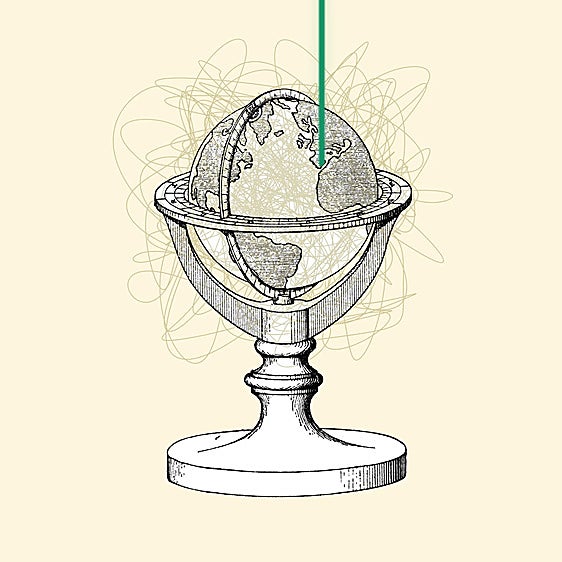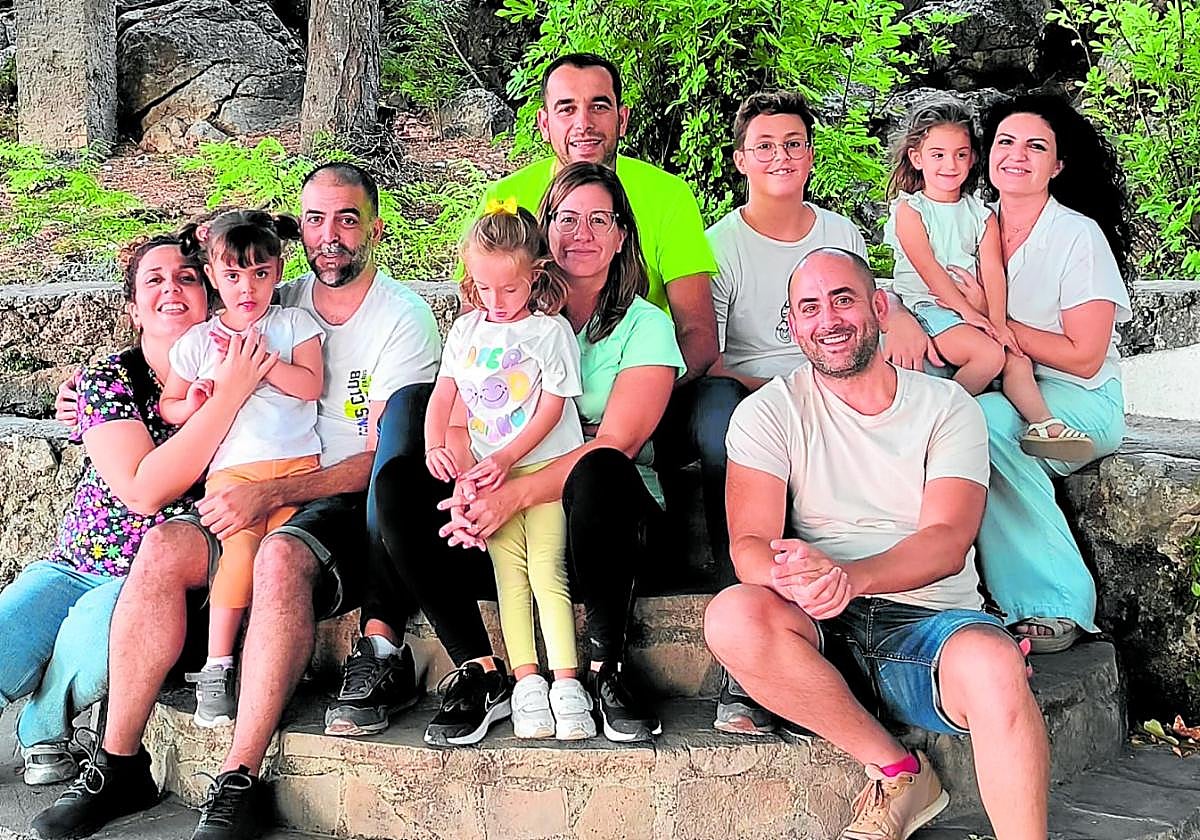Half a kilo of life
Three families who spent anxious hours by an incubator have launched Malaga's first support group for parents of premature babies
Susana Zamora
Malaga
Friday, 13 December 2024, 10:55
The wait ended far too soon - much sooner than anyone had hoped. Their arrival was sudden, filled with confusion and fear, yet they fought to hold on to life. They were born premature - far too premature.
"It was like seeing a 5D scan, but outside the womb," recalls Miriam Candelario, who gave birth to her daughter Lucía after a high-risk pregnancy. Already a mother to a nine-year-old son, Miriam had suffered a previous miscarriage and had been warned it could happen again. Despite this, she decided to try for another child.
But the pregnancy did not reach full term. At 24 weeks, she gave birth to a tiny baby weighing just 500 grammes. It was right on the limit.
"Week 23 is considered a grey area, where the chances of survival are low. If we intervene, it is always done in consultation with the parents, who are fully informed of the risks," explains Tomás Sánchez, head of the neonatal unit at Malaga's Materno Infantil hospital.
This hospital is one of the top three in the country for treating newborns weighing less than 1,500 grammes. Last year alone, around 600 premature babies were admitted, making up 11% of all births at the facility.
The general trend over the last decade has been an increase in premature births, largely due to factors such as older maternal age and fertility treatments, which are often linked to multiple pregnancies that carry a higher risk of prematurity.
"This has led to a rise in the global percentage of premature births in recent years. However, many children who would have died a decade ago due to being extremely premature now survive," explains Sánchez. He highlights the importance of current prenatal care and its role in detecting any issues with fetal development.
A survivor
Lucía is a true example of survival. She was resuscitated eight times in the intensive care unit. Her mother feared she might lose her at birth, but that very same day, she found the strength to go and see her.
"Some people wouldn't have the strength to do it so soon, but if they hadn't taken me, I think I'd have hurt someone," she jokes as she recalls the moment that will stay with her for the rest of her life.
A month passed before she was able to hold her baby and give her something no medical treatment can provide: that first hug, which is not only emotionally crucial but also vital for the baby's neurological development and chances of survival.
"When the baby is born extremely prematurely, it happens during a period of rapid brain growth. That's why the focus isn't just on treating health issues, but also on protecting that development. This is what we call 'developmental care' and the best people to provide it are the parents themselves, with support from the unit's staff. Known as family-centred care, it has the added benefit that, once trained, parents can continue this care when they go home," explains Sánchez.
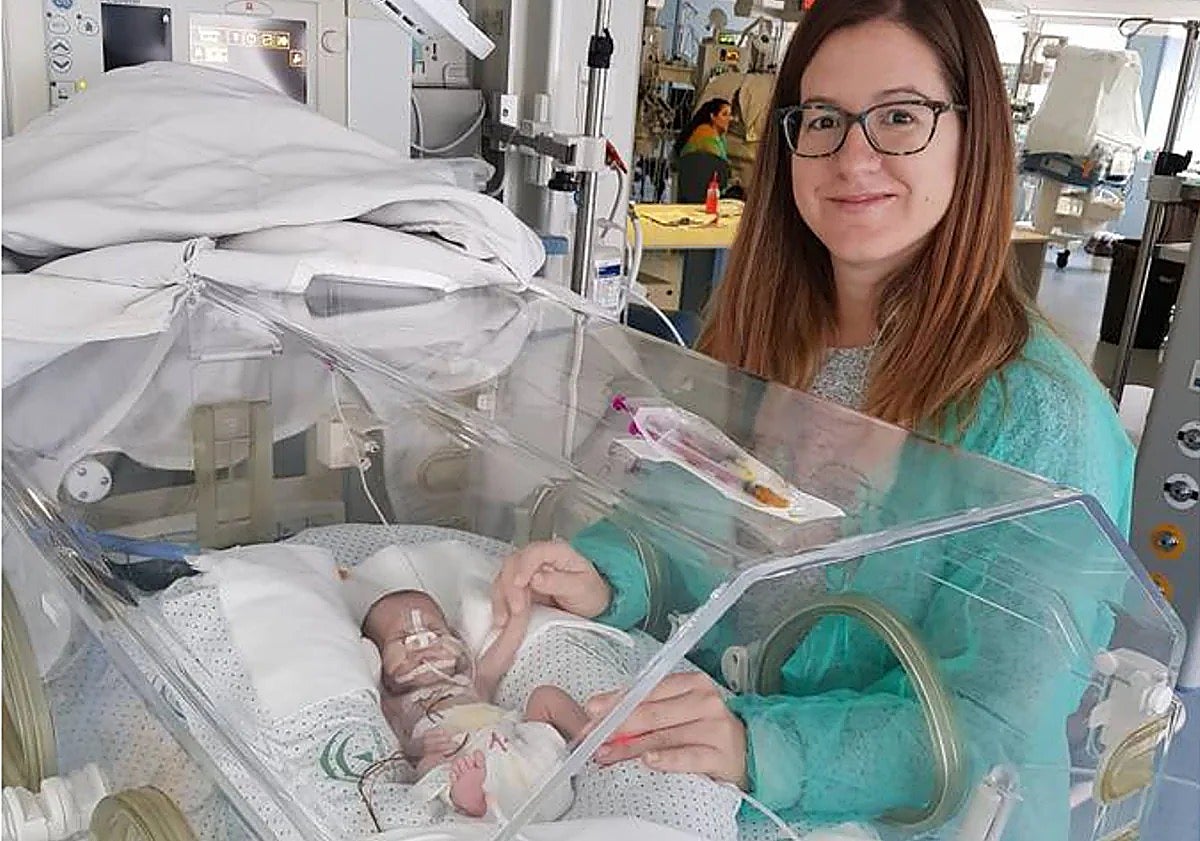
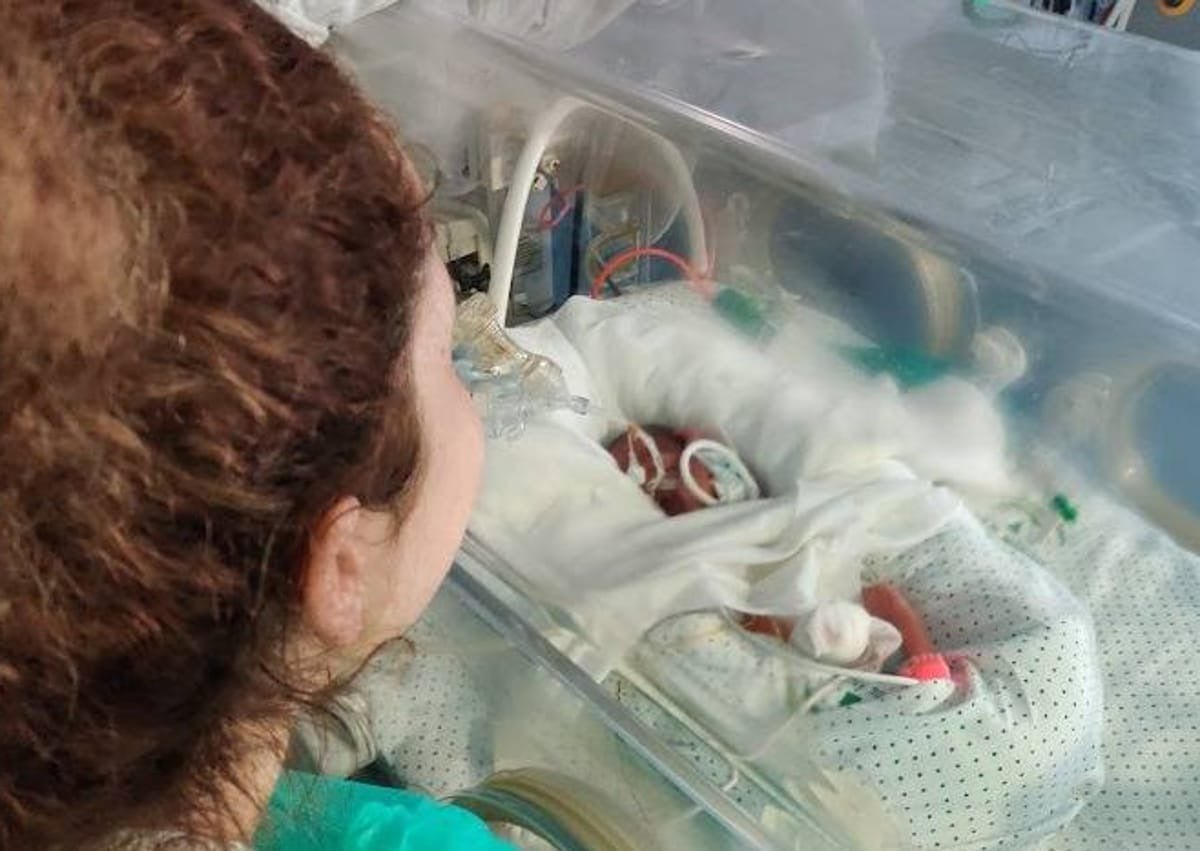
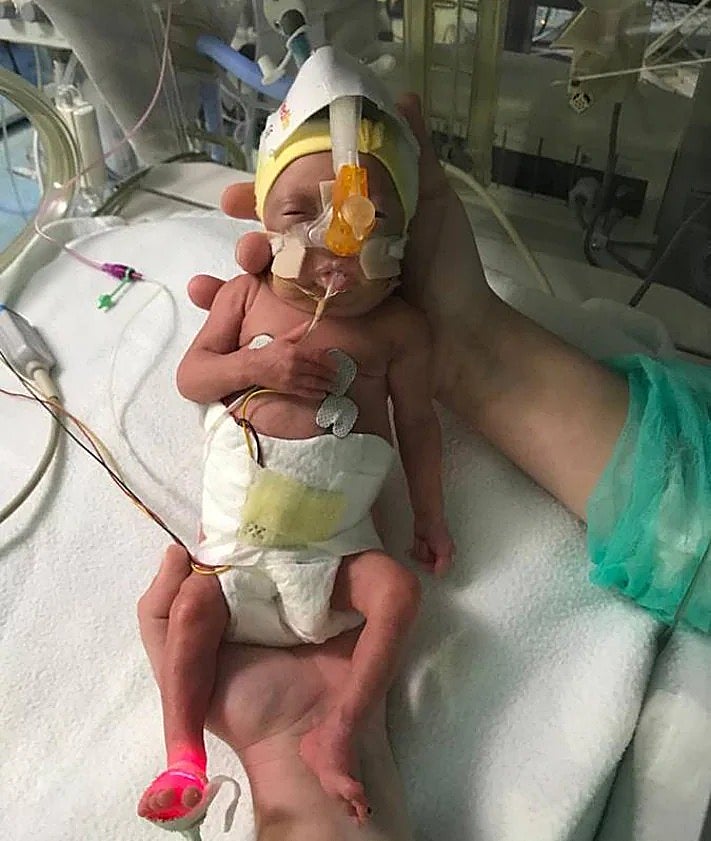
Through the window
Sánchez recalls that 30 years ago, when he first started in paediatrics, parents could only see their premature babies in incubators through a window from the corridor. Today, however, access to the unit is open 24 hours a day because 'kangaroo' care is crucial. This involves taking the baby out of the incubator and placing them skin-to-skin with their mother or father, allowing them to hear their voices and feel their presence.
"The benefits are well-established: the baby breathes better, requires less oxygen, needs less sedation and if they undergo a painful procedure, it causes them less distress," Sánchez explains.
Premature babies can suffer from a range of health complications, such as infections, digestive problems, the need for oxygen therapy or neurological issues, which require ongoing, multidisciplinary care once they leave hospital. The duration of this follow-up depends on the severity of the condition, and as they grow, the number of visits gradually decreases.
On 10 December Lucía turned five. "She left the hospital with a long medical record; today, she only sees the ophthalmologist and the neurologist for the retinopathy and bronchopulmonary dysplasia she still carries from her birth. Otherwise, she's a lively and cheerful little girl," her mother explains.
She says this with immense admiration, reflecting on the four months Lucía spent in the Materno, counting every hour and every day as a vital victory. Despite some low moments, she never lost hope.
"I'd go to the shower and cry but when I came out, I was the strongest woman in the world again," she says.
Support from other parents
In those moments of distress and anxiety, of fearing a fatal outcome, of uncertainty about possible long-term effects, of frustration with the difficulty of producing breast milk and of mental and physical exhaustion from spending 23 hours a day in the hospital fighting alongside her baby, Miriam found empathy, understanding and comfort in other parents. They were the shoulders to cry on when there was bad news.
The long, emotional rollercoaster days were shared. Mothers and fathers would support one another, understanding each other's struggles to make the experience more bearable. While they acknowledge the professionalism and dedication of the unit's staff , "there is a lack of psychological support", states Miriam. Alongside Ana García and Carlos Clavero, she helped establish Malaga's first premature baby association (Premálaga) in 2021.
"The hospital isn't equipped to support parents who are in shock and anxious about what might happen," explains Clavero, whose daughter was born on 5 January 2020. She was born at 25 weeks and weighed just 680 grammes. Daniela was a much-wanted child, "conceived through artificial insemination," says her father. However, from the very start, it was a high-risk pregnancy due to a condition called placenta previa. She required bed rest from the second month and at 20 weeks, the bleeding began.
"On Christmas Day 2019, we were admitted and on 5 January, the eve of Epiphany, she was born by emergency C-section."
"When I went down to see her, seven hours after the birth, I went alone and admit that it was traumatic. Nothing is like you imagined it would be when you become a parent. I was overwhelmed. I found a baby whose skin hadn't developed, covered in wires and in an incubator that kept beeping. At the same time, the doctors bombarded me with information all at once, and I was in shock," explains Carlos Clavero.
Emotional support
"My wife met our daughter three days after she was born and even today, she finds it difficult to describe how she felt at that moment. She hasn't got over it," he adds. Clavero is also the president of Premálaga, an association that provides emotional and psychological support, works with health authorities and other agencies to improve care for premature babies and offers guidance on benefits, allowances and parental leave.
"Many parents think that the 16 weeks of maternity leave start from the birth of a premature baby, but in these cases it's possible to extend the leave. Without the extension, it would be very difficult, as the leave would almost end when the baby is discharged from hospital, meaning parents should be able to go home at the same time," says Ana García.
García was able to take her daughter home on 20 March 2020, just a week after the declaration of the state of alarm due to Covid. In her arms was Julia, a baby weighing 3.2 kilos, who pulled through against all odds. "I went through a sort of grieving period, even though I hadn't lost my daughter, even today I am incredibly proud of her," said García.
It feels like a distant memory now, that night when Ana García, then mayor of Cuevas del Becerro, returned home after a long day spent planning the municipal budget. Just hours later, at 21 weeks and five days pregnant, her waters broke. She rushed to the hospital in Ronda, where, despite the high-risk nature of her pregnancy and being on the edge of the legal limit for terminating a pregnancy, she chose to discharge herself and go to the Materno hospital for a second opinion.
"I'm not sure if it was maternal instinct, but I just had a feeling that my baby would survive," she recalls. "At the Materno, they weren't as certain; no one could promise me anything," she adds, but she held on to her belief. She was admitted, and at 25 weeks, Julia came into the world weighing just 650 grammes. It was 18 December 2019.
"They had to resuscitate her, but she responded well to everything. The baby's weight isn't as important as its maturity and my daughter was determined to live," Ana García stresses, having never lost hope. However, she admits to the fear of a tragic outcome: "I didn't want to get my hopes up and thought that if the worst was going to happen, I'd rather it happen early on."
García's only thought was, "Each week is one step closer to getting out of the incubator". During the time her baby was in the neonatal unit, the support from other parents was crucial in helping her find the strength to carry on when she felt drained.
"Just as parents are never truly prepared to cope with the death of a child, they are also unprepared for the emotional challenges of having a baby born at barely half the usual gestation period," says this mother, who acknowledges the work of the neonatal unit, "where there are exceptional nurses. But they can't care for our babies and provide psychological support to the parents at the same time". It was from this need, as the parents stood by the incubators, that Premálaga was born, "because only those of us who have gone through this truly understand the suffering it brings."
